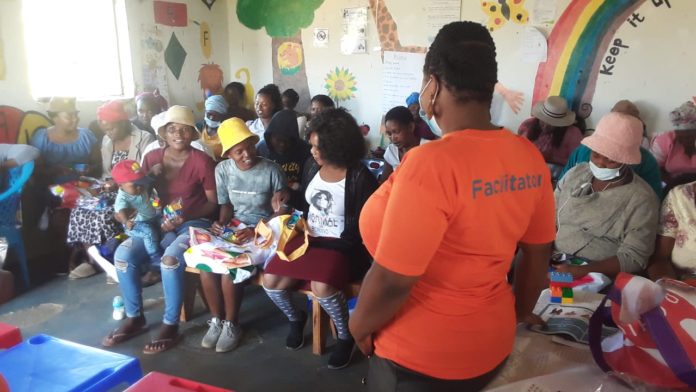Since childhood is the most important developmental stage of life, eliminating all forms of malnutrition in children is the ultimate goal, and ECD centres in South Africa are at the core of supplying healthy nutrition to children. Dr Jessica Ronaasen, National Programmes Lead at the DO MORE FOUNDATION says that the foundation has endeavoured to proactively tackle the malnutrition issues in South Africa by activating the power of those who care for young children. “We recognise the importance of nutrition and the vital role that principals, in tandem with parents and teachers, need to fulfil in ensuring good nutrition in these developmental years.”
ECD centres are perfectly positioned to help tackle this complex issue of addressing malnutrition, as they are designed to provide early childhood development services and programmes that include good health, proper nutrition, and early learning through a holistic approach¹. “ECD centres could be the cornerstone of improving the health and nutritional status of children but despite the efforts of ECD Principals, who largely influence the nutritious meals served at centres and encourage parents to choose healthy foods, nutritional status is still a concern in the ECD sector,” explains Dr Ronaasen.
The first five years of a child’s life are crucial as during this time the human brain grows the fastest and is most receptive to its surroundings, care, nutrition and learning opportunities. Given that 65% of young children in South Africa live below the poverty line, the cost of healthy eating is often reflected in the low intake of protein, as well as a limited variety of fruit and vegetables because meals mostly consist of affordable starch-based foods¹. “Promoting affordable and healthy food choices to communities is a key message shared by the DO MORE FOUNDATION’s recent pilot parent programme entitled EAT LOVE PLAY TALK,” says Dr Ronaasen. “It has been developed to encourage conversations and play-based activities with parents and caregivers of children up to 5 years of age.”
This light touch programme with the themes of healthy eating, building loving relationships, playful learning and language development, uses a peer-trainer approach with local communities to promote the sustainable development goals of both education and nutrition. “While reflecting on the design process and rollout of EAT LOVE PLAY, I am thrilled to see the impact of public health messages being embedded into parent education. This is an innovative approach necessary to see sustainable change in young South African children’s nutritional status,” she adds.
During 2022, 22 ECD centres in four communities across the country participated in the pilot rollout with a remarkable 572 caregivers. The Foundation operates through a collective impact model which will make this project possible in five additional communities in 2023 through collaborative partnerships. “Equipped with nutritional knowledge the ECD principals, practitioners and centres now have a better understanding of the importance of good nutrition and healthy eating habits for young children. Principals will be able to bolster menus to include more fruits and vegetables in place of refined carbohydrates or include healthy snack suggestions to parents for lunch boxes. EAT LOVE PLAY TALK has taught a simple lesson: caregivers and ECD staff are key to improving nutrition at ECD centres,” concludes Dr Ronassen.












